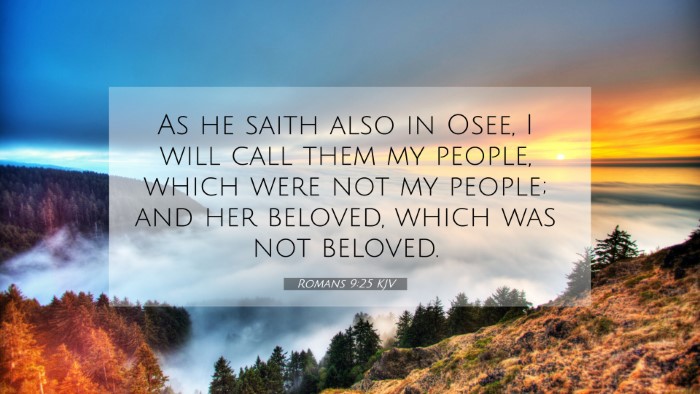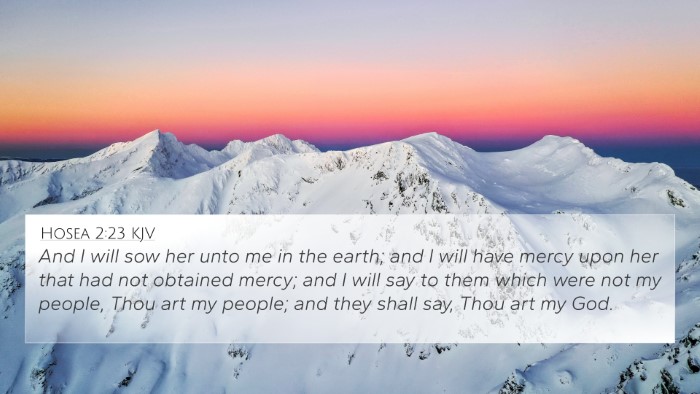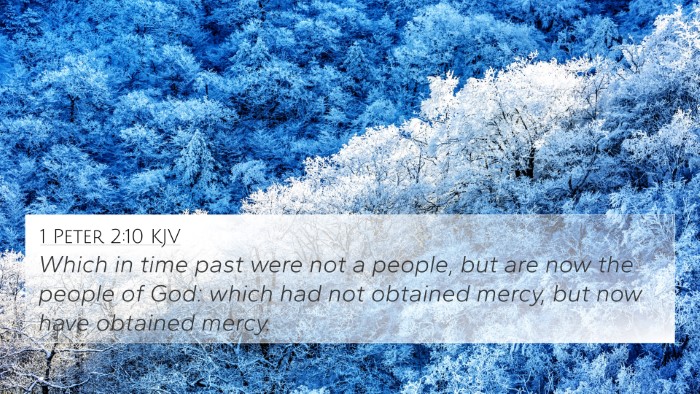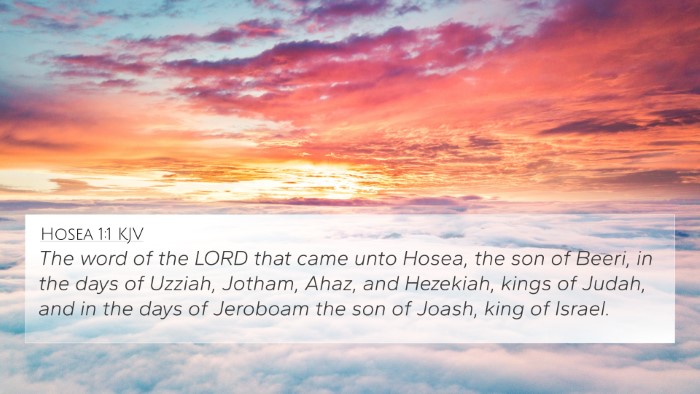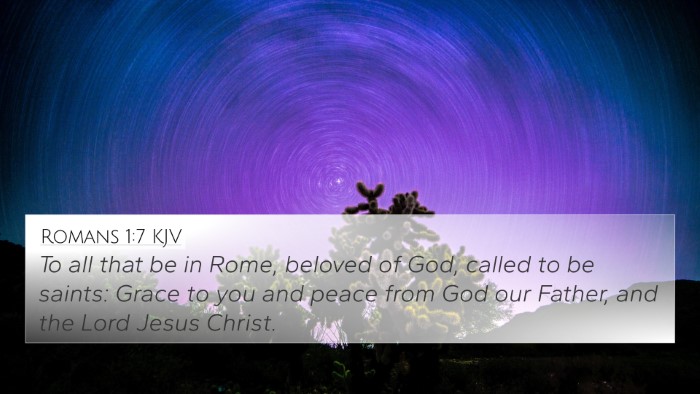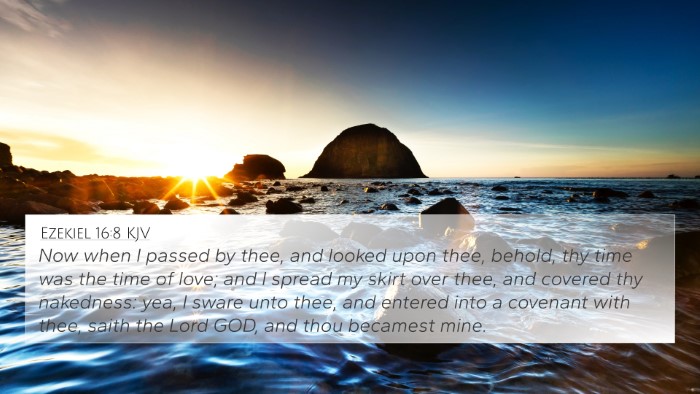Understanding Romans 9:25
Romans 9:25 states: "As he saith also in Osee, I will call them my people, which were not my people; and her beloved, which was not beloved."
This verse draws upon themes of inclusion and divine mercy, emphasizing God's sovereign choice in extending grace to those once considered outsiders.
Interpretation and Meaning
Drawing from Matthew Henry's commentary, we understand that this reference to the prophet Hosea illustrates God’s desire for a relationship with all humanity, not just Israel. It signifies a shift in God’s people, where those who were outside the covenant community are now brought in as beloved.
Albert Barnes expands on this by highlighting the profound implications of inclusion. He emphasizes that God can declare anyone as 'My people,' reflecting His unbounded grace and the universality of the Christian message. This verse amplifies the theme of the Gospel where Gentiles are welcomed into the fold of God.
Adam Clarke notes the prophetic nature of this text, propelling the reader to acknowledge that God's blessings and calls are not confined to a specific group. It showcases God’s willingness to redefine His people based on faith and acceptance of His Word.
Key Themes
- Divine Sovereignty: God's choice transcends human boundaries.
- Inclusivity of Salvation: Embracing Gentiles as part of God’s people.
- Prophetic Fulfillment: Linking Old Testament prophecies with New Testament realities.
- Grace Over Law: Emphasizing faith over lineage for righteousness.
- God's Love: Identifying those once considered 'not beloved' as now cherished.
Cross References
Romans 9:25 connects with several significant biblical texts that explore themes of divine election and inclusion:
- Hosea 1:10 - Relating to the calling of a people not previously recognized by God.
- Isaiah 10:22-23 - A reaffirmation of God’s promise to a remnant.
- Romans 11:25-26 - Clarifying the mystery of Israel’s partial hardening and eventual salvation.
- Galatians 3:28 - Affirming no distinction in Christ Jesus, breaking barriers between Jew and Gentile.
- Ephesians 2:19 - Declaring former outsiders as fellow citizens with the saints.
- 1 Peter 2:10 - A reminder of the identity change from not being a people to now being God's people.
- Matthew 21:43 - Jesus speaking about the kingdom's inheritance being given to a fruitful nation.
Comparative Analysis
In conducting a comparative Bible verse analysis, it’s essential to observe the theme of God’s grace woven through both Testaments. Analyzing these connections enhances understanding of how the Scripture builds upon itself:
- Linking Bible Scriptures: The motifs in Romans resonate with themes expressed in Hosea, portraying God’s enduring faithfulness despite human unfaithfulness.
- Bible Verse Parallels: Similar sentiments are echoed in James 2:13, stressing that mercy triumphs over judgment.
- Inter-Biblical Dialogue: The New Testament often references the Old, showcasing God's unfolding plan for humanity.
Reflection on God’s Character
This verse calls believers to reflect on the inclusivity of God’s love. It invites an examination of personal biases and calls for acceptance towards those who may feel alienated from the body of Christ.
Tools for Bible Cross-Referencing
For those interested in deepening their study, employing a Bible concordance or a Bible cross-reference guide can significantly enhance understanding. Tools like these facilitate the discovery of Bible verses that relate to each other and offer valuable resources for sermon preparation and personal study.
Conclusion
Romans 9:25 reminds us that God's love and call extend beyond our expectations. As we engage with scripture, the complexities of divine grace become more apparent, encouraging an inclusive community rooted in faith. As you reflect on this verse, consider how its message applies to your life and your understanding of God’s expansive love.


